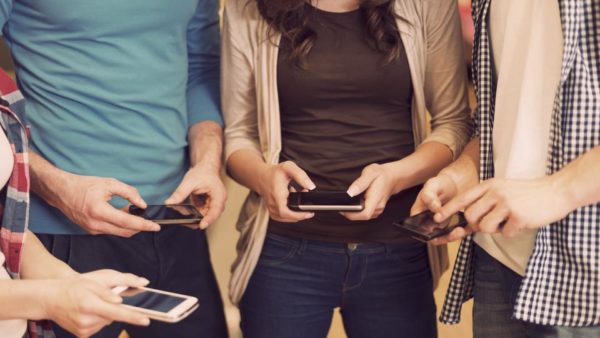Just four years ago I was a cheerleader. Social media was supposed to be the great hope for democracy. I know because I told the world so. I said in 2014 that no one could predict where this revolution would take us. My conclusion was dusted with optimism: a better connected human race would find a way to better itself.
I was only half right: nobody could indeed have predicted where we have ended up. Yet, my optimistic prognosis was utterly misguided. Social media has led to less human interaction, not more. It has suppressed human development, not stimulated it. As Big Tech has marched onward, we have regressed.
Look at the evidence. Research shows that social media may well be making many of us unhappy, jealous and — paradoxically – antisocial. Even Facebook gets it. An academic study that Facebook cited in its corporate blog post revealed that when people spend a lot of time passively consuming information they wind up feeling worse. Just ten minutes on Facebook is enough to depress — clicking and liking a multitude of posts and links seems to have a negative effect on mental health.
Meantime, the green-eyed monster thrives on the social network: reading rosy stories and/or carefully controlled images about the social- and love-lives of others leads to poor comparisons with one’s own existence. Getting out in the warts-and-all real world and having proper conversations would provide a powerful antidote. Some chance! Humans have convinced themselves that ‘catching up’ online is a viable alternative to in-person socialising.
And what of consumer choice? Don’t book your next city break via Google. Research shows that a typical search for a family vacation begins with “the best hotels in…” or the “top ten hotels in…”. Yet these searches return paid-for links from big identikit hotel companies and well-funded broker websites. Local bloggers, like the guy in Jaipur or the girl in Paris who make it their job to suggest the most interesting stays, don’t appear until search page ten (aka nowhere). Discovering real places, recommended by locals and run by real people, got a lot harder in the internet age. Guidebooks used to do the job, but few buy them anymore.
We are becoming unthinkingly reliant — addicted — to ease-of-use at the expense of quality. We are walking dumpsters for internet content that we don’t need and which might actively damage our brains.
The technology industry also uses another technique to keep us hooked: feeding us a bottomless pit of information.
This phenomenon is the effect Netflix has when it auto-plays the next episode of a show after a cliffhanger and you continue watching, thinking, “I can make up the sleep over the weekend.” The cliffhanger is, of course, always replaced by another cliffhanger. The 13-part season is followed by another one, and yet another. We spend longer in front of the television, yet we feel no more satiated. When Facebook, Instagram and Twitter tack on their scrolling pages and update their news feeds, causing each article to roll into the next, the effect manifests itself again.
Perhaps we should go back to our smartphones and, instead of playing Netflix or sending texts on WhatsApp, use their core function. Call up our friends and family and have a chat or – better – arrange to meet them.
Meanwhile, Big Tech could carve an opportunity from a crisis. What about offering a subscription to an ad-free Google? In return for a monthly fee, searches would be based on quality of content rather than product placement. I would pay for that. The time-savings alone when booking a trip would be worth it.
Apple pioneered the Do Not Disturb function which stopped messages and calls waking us from sleep, unless a set of emergency-criteria were met by the caller. How about a Focus Mode that turned off all notifications and hid our apps from our home screen, to ease the temptation to play with our phones when we should be concentrating on our work, or talking to our spouses, friends and colleagues?
In the 1980s, the BBC in Britain ran a successful children’s series called Why Don’t You? that implored viewers to “turn off their TV set and go out and do something less boring instead”, suggesting sociable activities that did not involve a screen. It was wise before its time. The TV seems like a puny adversary compared to the deadening digital army we face today.
Vivek Wadhwa is a Distinguished Fellow at Harvard Law School and Carnegie Mellon University. This article is based on his forthcoming book, Your Happiness Was Hacked: Why Tech Is Winning the Battle to Control Your Brain — and How to Fight Back, which will be published by Penguin Random House India in June.
The views expressed are personal






Leave a reply